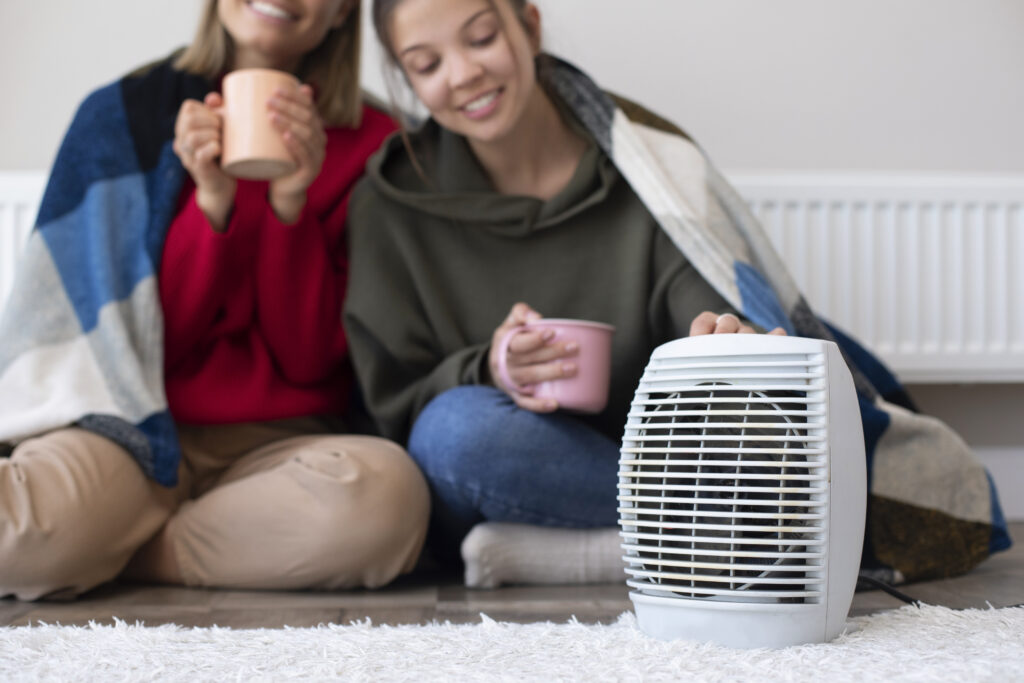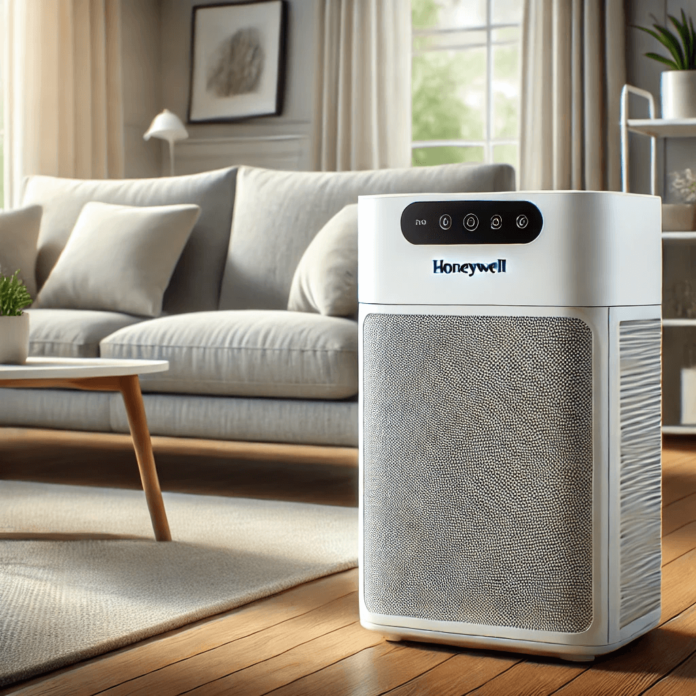Introduction
- What Is an Air Purifier?
- What Is a Humidifier?
- When to Use an Air Purifier
- When to Use a Humidifier
- Can Air Purifiers and Humidifiers Be Used Together?
- Choosing the Right Device for Your Needs
- Common Misconceptions
- The Future of Air Purifiers and Humidifiers
- Air Purifiers vs. Humidifiers: Understanding Their Differences
- Conclusion
- FAQs
When it comes to enhancing air quality, understanding the differences between air purifiers vs. humidifiers is essential. Air purifiers effectively eliminate airborne contaminants such as dust, allergens, and smoke, providing a cleaner and healthier breathing environment. On the other hand, humidifiers add moisture to the air, helping alleviate dry skin, irritated throats, and respiratory discomfort. Both devices address unique issues, and the right choice depends on your specific needs. Whether you’re combating allergens or battling dry air, each plays a vital role in improving your indoor environment.
What Is an Air Purifier?
An air purifier is a device designed to clean the air by removing pollutants, allergens, and odors. It works by drawing in air, filtering out harmful particles, and releasing clean air back into the room.
Key Features of Air Purifiers:
- HEPA Filters: Capture 99.97% of airborne particles like pollen, dust, and pet dander.
- Activated Carbon Filters: Neutralize odors and harmful gases.
- UV-C Technology: Eliminates bacteria and viruses.
Benefits of Air Purifiers:
- Alleviates allergy and asthma symptoms
- Removes smoke and odors
- Reduces airborne bacteria and viruses
What Is a Humidifier?
A humidifier increases air moisture levels, creating a more comfortable and breathable indoor environment.It’s especially useful in dry climates or during winter when indoor air tends to become dry.
Types of Humidifiers:
- Ultrasonic: Uses vibrations to create a fine mist.
- Evaporative: Relies on a fan to release water vapor.
- Steam-Based: Boils water to produce steam.
Benefits of Humidifiers:
- Relieves dry skin, eyes, and throat
- Reduces symptoms of colds and congestion
- Improves sleep and comfort
When to Use an Air Purifier
- If you or your loved ones experience allergies or asthma, finding the right solutions is essential for comfort and health.
- When dealing with smoke, pet odors, or other indoor air pollutants.
- If you reside in an urban or high-pollution area, maintaining clean indoor air is crucial for your well-being.
When to Use a Humidifier
- During winter or in dry climates when indoor air becomes excessively dry.
- To relieve dry skin, cracked lips, or throat irritation.
- When caring for babies or young children.
Can Air Purifiers and Humidifiers Be Used Together?
Yes, they can complement each other. An air purifier cleans the air of pollutants, while a humidifier adds moisture, creating a more comfortable and breathable indoor environment.For optimal results:
- Place the devices in separate corners of the room.
- Monitor air quality and humidity levels to prevent overuse.
Choosing the Right Device for Your Needs
Assessing Indoor Air Quality and Humidity Levels
Start by evaluating your indoor environment. If your air feels dry, especially during winter, a humidifier can help add moisture. On the other hand, if you’re dealing with allergens, smoke, or odors, an air purifier with HEPA filters is the better choice.
Identifying Specific Health Concerns
For allergy or asthma sufferers, air purifiers can significantly reduce triggers like pollen, dust, and pet dander. If you experience dry skin, itchy eyes, or respiratory discomfort due to low humidity, a humidifier may be the solution.
Evaluating Room Size and Coverage Area
Choose a device that matches your room’s size. Air purifiers list their CADR (Clean Air Delivery Rate) and coverage area, while humidifiers specify the square footage they can handle.
Common Misconceptions
Do Air Purifiers Add Moisture to the Air?
No, air purifiers remove airborne particles but don’t impact humidity. To add moisture to dry air, a humidifier is required.
Can Humidifiers Remove Allergens?
Humidifiers add moisture to the air but don’t filter out allergens like pollen or dust. An air purifier is required for allergen removal.
Are These Devices Expensive to Operate?
Modern air purifiers and humidifiers are designed to be energy-efficient. Look for Energy Star-certified models to keep operational costs low.
The Future of Air Purifiers and Humidifiers
Smart Integration with IoT
Next-generation devices feature app control, air quality monitoring, and voice command compatibility, allowing for remote adjustments and real-time updates.
Hybrid Models Combining Purification and Humidification
Innovative devices now offer combined air purification and humidification, making it easier to maintain both clean and comfortable air with one unit.
Eco-Friendly and Energy-Efficient Designs
Future models emphasize sustainable materials, lower energy consumption, and even solar-powered options to reduce their environmental footprint.
Maintenance Requirements
Air Purifiers
- Replace HEPA and carbon filters every 6–12 months.
- Clean pre-filters regularly to ensure efficiency.
Humidifiers
- Regularly clean the water tank, ideally once a week, to avoid the growth of mold and bacteria.
- Use distilled water to reduce mineral deposits.
Air Purifiers vs. Humidifiers: Understanding Their Differences

When comparing air purifiers vs. humidifiers, it’s important to recognize their unique roles in improving indoor air quality.
- Air Purifiers: These devices effectively capture airborne pollutants such as dust, pollen, pet dander, and smoke, improving indoor air quality. Equipped with technologies like HEPA filters and activated carbon, air purifiers are ideal for allergy sufferers or those in polluted areas.
- Humidifiers: Humidifiers increase moisture in the air, alleviating dryness that causes cracked skin, dry throats, and irritated nasal passages. They are particularly useful in dry climates or during winter when indoor air tends to become excessively dry.
While air purifiers clean the air, humidifiers improve comfort by balancing humidity levels. For optimal air quality, you may even consider using both devices together.
Conclusion
Air purifiers and humidifiers are both essential for enhancing indoor air quality and ensuring a comfortable living environment. While air purifiers remove pollutants and allergens, humidifiers tackle dryness-related issues. Choosing the right device—or a combination of both—depends on your specific needs and living environment.
FAQs
1. Can air purifiers and humidifiers improve sleep?
Yes, purifiers clean the air for easier breathing, and humidifiers add moisture to reduce dryness-related discomfort.
2. Are these devices safe for pets?
Yes, but ensure humidifiers are placed out of pets’ reach to avoid spills.
3. How do I know if I need both devices?
If you experience both poor air quality and dry air symptoms, using both devices may be beneficial.
4. What size device is best for my room?
Check the device’s coverage area and choose one that matches your room size.
5. Are there any risks of overusing a humidifier?
Yes, excessive humidity can lead to mold growth and condensation. Monitor humidity levels to stay within the recommended range of 30–50%.














